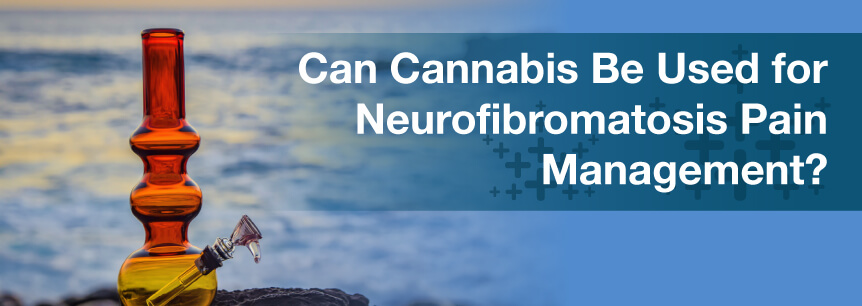
Neurofibromatosis is a heartbreaking condition that can affect men and women of any ethnicity. The disorder causes tumors to develop in a patient’s nerve tissue. Physicians are usually able to diagnose neurofibromatosis, or NF, in childhood or early adulthood.
There are three types of NF that all have varying symptoms and manifestations: NF1, NF2 and schwannomatosis. One of the most common characteristics, however, is pain. The tumors that develop can become severely painful as they grow, especially for those with NF2 and schwannomatosis.
There is no cure for neurofibromatosis. Since pain management becomes a priority for patients to live full and productive lives, specialists are often needed to help them find effective treatment plans. There are several different pain medications, but these can cause severe side effects. Medical marijuana is becoming an accepted treatment for pain management. And it may just be the answer that neurofibromatosis patients need.
A frequent symptom shared by many patients with neurofibromatosis is severe pain. Depending on the type of NF that a patient has, tumors, also called neurofibromas, can form on nerve tissue in multiple locations. This creates painful complications. Each type of neurofibromatosis can yield different causes to pain:
On top of these painful symptoms, many patients struggle with other physical and emotional symptoms due to their illness. Stress, low self-esteem and depression are quite common among those with NF.
Because of the severe pain caused by neurofibromatosis, pain management is a top priority. There are several pain meds a physician may attempt to treat patients with, but they can have side effects that severely impact a patient’s quality of life. Some of the most common options include:
As the medical world and the public begin to understand medical marijuana more and more, it’s starting to be seen as an accepted treatment for severe pain. For decades, those with chronic pain used cannabis illegally to self-medicate. From then until now, there has never been a case of someone overdosing and dying by using marijuana. Today, doctors in many states can recommend cannabis medications for those suffering from conditions that cause chronic pain, like neurofibromatosis.
The two main compounds in marijuana, CBD and THC, both have analgesic properties and bind to endocannabinoid receptors in our brain to naturally inhibit pain. This allows patients with NF to find relief without the dangerous side effects associated with most pain medications. Although controversial, medical marijuana can even be used by children. CBD is a pain-fighting compound in cannabis that has no psychotropic side effects, meaning medications with a high concentration of CBD and little to no THC won’t get users high.
Medical marijuana can also help patients combat some of the emotional symptoms associated with the condition, including depression and anxiety.
If you’re interested in exploring medical marijuana treatments, your first step should be finding a marijuana doctor in your state. They can assess your condition, let you know if you qualify for cannabis medications and address your individual concerns. Local dispensaries are also staffed with professional budtenders trained to answer any question you have about medical marijuana. Use our resources to contact a qualified professional today.